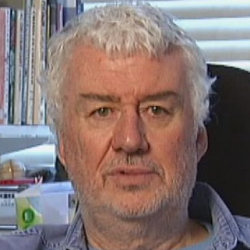Research security, information restriction, and the universities
February 1, 2024
It was bound to happen in one form or another. The AUKUS arrangements were a guarantee of it. The it in question is the alleged discovery and lamentation that, possibly, Australia has one of the weakest research security frameworks in the developed world. Redress is demanded and of a draconian character; not to do so is to contemplate consequences too terrifying to contemplate.
The specific genesis of this outburst is a report which, as part of a broader push to tighten security, contains a proposal by science funders in the US, UK and Canada to set up a network to share information about security risks potentially those posed by espionage imputed to China, Iran, and Russia in the main affecting international research projects.
This is hardly a revolutionary initiative. The intent is to share unclassified information that can help each regions research performers key science agencies and their ministries, universities, and small businesses avoid security risks when operating internationally.NB: these proposed arrangements relate to unclassified research and information in the fields of science and technology.
The wider context and scope of it all are supplied by the Republican-controlled House of Representatives which is advocating increasing restrictions in collaborative research with foreign partners including projects with US allies.
One measure under the aegis of the US arrangements and which will become operational later in 2024 is the creation of a new clearing house for what is defined as research-security information which will advise on the security risks attached to specific projects. Although it will take different forms in different countries, their ambit requires the national security agencies to have access to research grant applications.
In Canada, this has resulted in certain projects being vetoed. In the EU, a security toolkit has been published for the advice of research organisations.
At this point there is a need to consider what is underway and where it might be going. First, the information in question is unclassified (that status being undefined), and thus presumably available on the public record. If the arrangements above have been accurately reported, then the intention seems to be restrict it on the grounds of national security.
Second, and by extension, the intention is to render porous the distinction between classified and unclassified the latter being subsumed by the former according to the dictates of the national security agencies given access to research funding applications.
Third, though the information in question relates to science and technology, how tenable will be the suggestion that the research in the humanities, arts and social sciences will be firewalled from science and technology?
These considerations, egregious as they are, must now be placed alongside the reaction which the original report provoked and which, under AUKUS, will usher in appalling consequences for the Australian universities.
At the core of this is the conflict between the undeniable, legitimate and essential needs of national defence to be served by highly competent specialists in all fields, and the encroachments these requirements make onto the university system. While the latter, in many cases, has the resources in demand, satisfying them extracts unbearable, self-destructive costs which indicate that they should be sourced elsewhere.
Some of these have been canvassed on this site (and others) earlier: they detail the future and corruption of the universities under AUKUS; the ways in which they are embedded and integrated in what is now emerging as a military-industrial-academic complex.
In all, they confirm the late Dennis Argalls extraordinary insight about AUKUS and its bastard child, the Defence Strategic Review captured concisely in the title of his piece, The Defence Strategic Review is a claim to command civil society.
That command proceeds apace if recent proposals are any guide. AUKUS, is nothing if not the energy-giving centre of a system of belief which dismisses challenges as highly polemical and politicised and, as such, is frequently prone to its own inadequacies.
Following on, and provoked by the original sciencebusiness.net article, a senior researcher in the Law Faculty at the University of Queensland has produced a melange which beggars the description analysis. Were it not for the irrational exuberance (to borrow from Alan Greenspan) that AUKUS is generating; the fact that the author, Dr. Brendan Walker-Munro, is a specialist on the implications of national security risks on higher education and research; that his article appears on the blog site of the Australian Association for Research in Education, and the universities mantra is clearly AUKUS at all costs, this offering would be best not rescued from the oblivion it deserves.
His concerns may be summarised as follows: the lack of any mention of Australia in the original document is interesting and somewhat chilling given Australia in AUKUS from which he deduces that one possible reason for this its omission is that Australia has one of the weakest research security frameworks in the developed world. The Commonwealth Government, the ARC, and the universities themselves are jointly charged with the responsibility this deplorable situation.
The recommended responses are, first, that the Australian Government articulate a policy on research and knowledge security; second, that it uses a template for doing so provided by the AUKUS partners; and third, Government, the universities, and the intelligence agencies especially ASIO and ASD need to work more closely and harmoniously. How closely and how harmoniously is left to the imagination but implicitly it would not exclude an on campus presence of the intelligence agencies just mentioned.
The problem with all of this is that its careless and confused. Careless because the original document does mention Australia and in a way that draws attraction to itself: indeed, it reports that, draft legislation in Australia would impose prison terms of up to 10 years on researchers who dont observe rising restrictions on sharing sensitive technologies even to allied nations.
Confused because at no stage does Walker-Munro acknowledge that the second paragraph of the original document opens explicitly with a reference to unclassified information; moreover he fails to distinguish between unclassified and classified information. Information, it seems, is fungible. Through a process of metamorphosis, located in the collective mind of whoever are appointed research security guardians, its nature and function can change.
And these duly authorised guardians will view all texts and statements by the adversaries of the day through a professionally ordained hyper-vigilance which empowers them to discover whatever repressed or hidden meanings they contain. No specific reasons need be given for their decisions which, in any case, will be beyond appeal.
The surreal intellectual-academic world ushered in with its episodes of anxiety and alienation will be one bordering on, or actually within a nightmare scripted by James Jesus Angleton and Franz Kafka.
If this is not the case, then why has such a level of concern be registered whereby the unclassified variety is spoken of as product that must be restricted. [My assumption is that the purpose of the unclassified information produced in (say) university research is to advance knowledge through publication in which case restricting access to it (by China, Iran, Russia, et.al.) is both impossible and preposterous].
To even begin to restore self-respect to the Australian universities it is essential to understand that AUKUS, currently, is the principal pons asinorum of its current state. Unaddressed, this state will entail further corruption and AUKUS will be elevated to the fons et origo mali.
What is important to understand is that Australian universities on their current AUKUS-defined trajectory will involve themselves in collaborative networks and an interlocking directorate of opportunities, favour, and obligation all centred on highly classified projects. They will become pipelines to the defence industries and agencies – prep schools and tool shops where the untrustworthy and unworthy are sorted out.
But this is an immense, unprecedented undertaking. It will become possible, however, if the current accelerating Americanisation of Australia proceeds unimpeded.
This is to say that it will, as best it can, adopt the American template for integration within the university-state-industry-intelligence complex. And that framework is vast and deep and now viewed as traditional.
Carnegie Mellon University report that, no later than 1994, in excess of 1,000 university-industry cooperative research centres had been set up some 200 campuses. Between them they spent USD4.3 billion on research and related activities, involved 12,000 faculty members in the project as well as 17 per cent of the Americas PhD students in the sciences and engineering.
In parallel, co-option of the universities is facilitated by way of a significant investment by intelligence agencies for the purpose of training and hiring eligible talent for their programmes.
One major programme started in 2004, but thereafter it grew into an extensive programme with the appellation Intelligence Community Centers of Academic Excellence, which, by early 2010, included openly-established centres on 22 campuses hosting 15 U.S. intelligence agencies including the CIA, FBI, National Security Agency, Defence Intelligence Agency, and Homeland Security.
By early 2010, the Intelligence Advance Research Projects Activity had contracted around 75 university research laboratories and another 50 technology companies, and the prospect was for more to join them in the quest.
Anything approaching this is a dismal state of affairs for those who take seriously the idea of a university that is about being much more than a prosthesis for a complex that cares little about the values of a liberal education, informed conceptually by (indicatively) Wilhelm von Humboldt, Regis Debray, and John Henry Newman, and committed to preserving it as a stable institution, able, because of its historical consciousness, to preserve at least a pocket of memory, and maintain, as Debray recalls it, a tribal reservation for the ethics of truth.
This is not to deny that considerable rewards accrue to those who play Faust to the complexs Mephistopheles, but the cost is inescapable: the loss of intellectual integrity.
And at this point it is appropriate to introduce the eminently reasonable principle expressed by the philosopher, Michael Ryan - that reason is inseparable from the institutions in which it is preserved and passed on, and in the practice of which it has its being,

